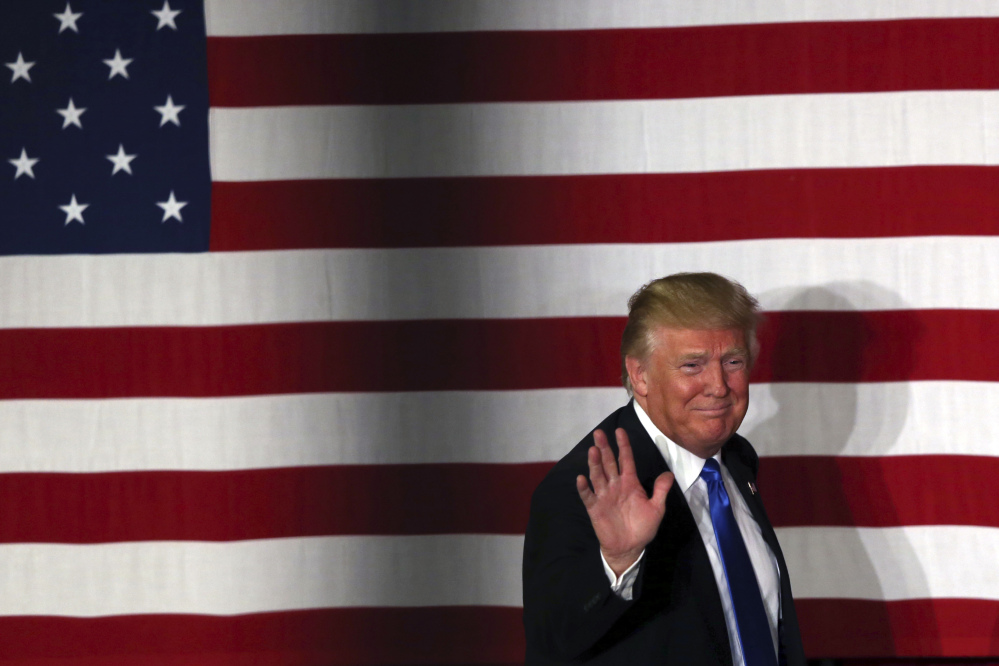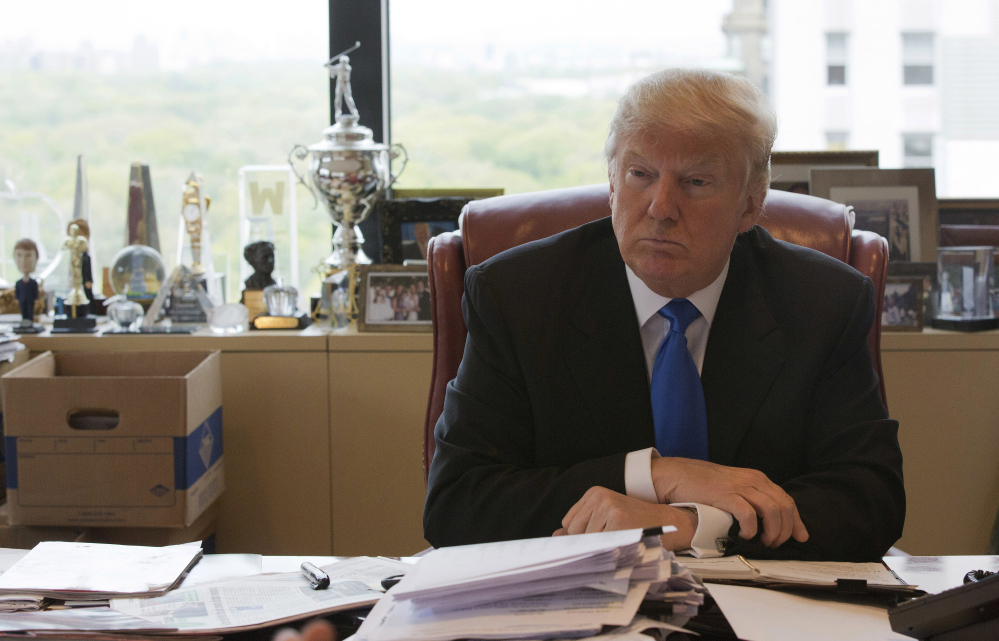Donald Trump spent much of the Republican presidential primary contest inveighing against politicians for leaning on wealthy contributors for support. Now he’s doing the same.
On Tuesday, some of the Republican Party’s best-connected fundraisers signed on to help raise as much as $1 billion for Trump and the Republican National Committee, part of an effort to rapidly build out a finance operation that the candidate has lacked until now.
Half a dozen of the party’s elite money players – including New York Jets owner Woody Johnson and Wisconsin billionaire Diane Hendricks – have agreed to serve as vice chairs of the Trump Victory fund, a joint fundraising committee among Trump’s campaign, the RNC and 11 state parties.
Johnson served as finance chairman for former Florida Gov. Jeb Bush’s presidential bid, while Hendricks donated $5 million to a super PAC supporting Wisconsin Gov. Scott Walker.
Corey Lewandowski, Trump’s campaign manager, said that the candidate was not contradicting his stance on rich donors by accepting their help, noting that most of the money raised would go to the RNC for its national voter mobilization.
“That will benefit not only Mr. Trump, but all the races down ballot,” he said, adding: “I don’t think it’s fair to say that an individual worth $10 billion will be indebted to someone who writes a check for $10 or $100.”
In fact, the victory fund is seeking donations in far greater amounts. The first fundraiser, which Trump was set to headline Tuesday in Albuquerque, New Mexico, requires a $10,000 donation per person. Tickets for a dinner in Los Angeles Wednesday at the home of investor Thomas Barrack Jr. start at $25,000.
And a rich supporter who wants to give more could shell out as much as $449,400 to the joint committee, whose proceeds are split between the Trump campaign and the party.
Leading the effort to bring in big dollars are major financial backers of Trump’s past rivals – even some he targeted as special interests who seek to control the agenda of the politicians they support.
Earlier this year, Trump cited Johnson, an heir to the Johnson & Johnson pharmaceutical fortune, as someone who would influence Bush on health care.
Nevertheless, his comments did not rankle the football team’s owner. Among the ties between the two men: Their daughters went to school together.
That kind of long-standing relationship that Trump has with business leaders has helped convert apprehension about the real estate developer into active support, donors said. The coalescing among the party’s money class has been accelerated by antipathy to Hillary Clinton.
“It’s the party unifying because they realize that Mrs. Clinton is not a viable choice,” said Ron Weiser, who was a national co-chair for Sen. John McCain’s 2008 presidential campaign and is one of the new Trump Victory vice chairs.
Just a few months ago, Florida developer Mel Sembler expressed dismay at the thought of Trump as nominee. Now he has agreed to serve as a vice chairman of the victory fund.
As a sign of party unity, the past three RNC finance chairmen have come aboard the effort: Weiser, a former ambassador to Slovakia; Dallas investor Ray Washburne, who had been the national finance chairman for New Jersey Gov. Chris Christie; and Los Angeles venture capitalist Elliott Broidy.
Send questions/comments to the editors.



